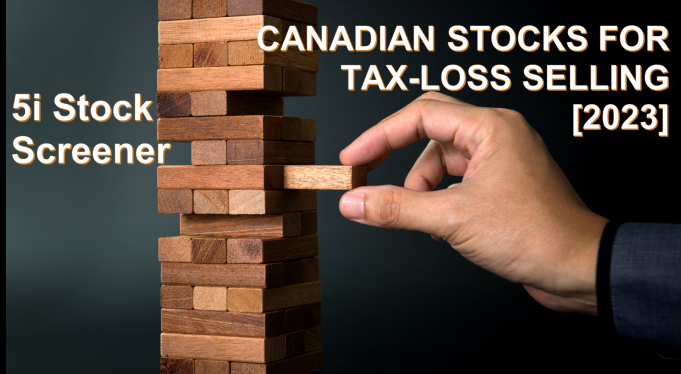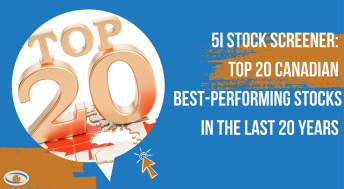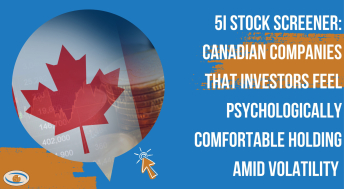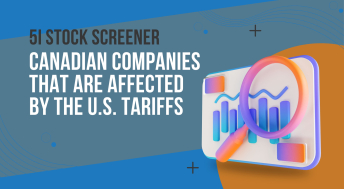2023 was such a volatile and challenging year for the equities market with geopolitical tensions, high energy prices, persistent inflation, weak consumer spending, etc. As for large indexes such as the Nasdaq or the S&P 500, the heavy lifting was done mainly by the “Magnificent Seven”, which referred to the mega-cap tech names. Excluding these names, the index was largely flat or even slightly down.
Given a challenging year for equities, especially small-caps, it is that time of the year again when investors can take advantage of their “losers” by claiming capital gains losses for tax-loss selling. As investors, we always want as many winners and as few losers as possible, however, not all bets end up working as beautifully as the original thesis seemed.
As the saying of the billionaire investor, Stanley Druckenmiller goes “It is not whether you’re right or wrong that’s important, but how much money you make when you’re right and how much you lose when you’re wrong”, we think a few big winners over a lifetime of investing could make the journey worthwhile. Therefore, we think investors should equip themselves with a long-term mindset, keep their heads down during tough times, stay invested, and take advantage of the opportunity from stocks that result in a capital loss.
The strategy can be accomplished by simply selling a temporary losing name in a non-registered account which could then be used to offset the net capital gains tax investors have on their investments. The unused amount of capital losses can be used from up to three years in the past or carried forward indefinitely.
After 30 days of the sale, investors can reinvest back in the same companies if they continue to believe in the companies’ fundamentals. At the end of the day, even the best compounders can have bad years. Over the long term, what matters is the company’s competitive positions and growth stories, investors need to evaluate the companies’ fundamentals, not necessarily only the share price.
Below we have screened for companies with the following criteria:
- Market cap larger than $100 million
- The share price has depreciated by at least 15%
- Expected revenue growth of at least 15% in the next year
- Earning before interest and tax (EBIT) 3-year compounded annual growth rate (CAGR) of at least 8%.
Here is the screener:
|
The criteria above reflects Canadian companies that have the share prices under pressure since the beginning of this year, depreciating at least by 15%, while their businesses continue to be solid and are expected to grow at least 15% next year. We think these companies usually operate in a secular tailwind for growth in the foreseeable future.
As usual, we prefer companies that are over $100 million in market cap, as these companies have proven themselves to be more mature, self-sustainable entities. Lastly, we screen for companies that have grown their EBIT in the last three years by at least 8% CAGR, as we want to screen for companies with strong secular tailwinds lasting for many years that currently experience headwinds, not just cyclical names.
Notable companies
Aritzia (ATZ): Aritzia is a fashion brand that designs and sells women’s apparel. ATZ is held in our Balanced Model Portfolio. The company has managed to grow its topline by 23% a year on average in the last five years. ATZ was hit this year, down 55% year-to-date, due to slower consumer spending, as well as a headwind in profitability. We think ATZ still has a long runway for growth, given its strong brand awareness among young consumers, we still believe in the long-term growth prospect of the business.
Nuvei Corp (NVEI): NVEI has been on the list two years in a row. This name is still held in our Growth Model Portfolio and operates in the payment technology solutions space. Most names in this industry have been under tremendous pressure amid a slowdown in growth. The market cap continues to get cut in half compared to the end of last year to around $2.7B. Its valuation has come down substantially to only 7.8x Forward P/E, which we think could recover strongly as growth prospects resume.
GDI Integrated Facility Services (GDI): GDI operates a stable, predictable business of providing facility services. The company has possessed decent pricing power, with a recurring revenue business model. Growth was driven largely by acquisitions strategy in the last few years. In addition, 5-year average sales growth was around 19%, while the company continues to execute their acquisition playbook, we think GDI is a solid name in our Growth Model Portfolio.
Andlauer Healthcare Group (AND): The high-quality small-cap supply chain management company that specializes in healthcare logistics. AND currently experiences a near-term headwind due to a tough comparison of COVID years. With a solid balance sheet strong insider ownership, and a resilient business model that consistently generates healthy cash flow, we continue to like AND as one of the core healthcare names in the Canadian market.
Lastly, these companies on the list are not recommendations but a starting point that helps investors generate potential tax-loss selling ideas. This list can also serve as a watchlist over the next 30 days for companies that may continue to be sold off due to other investors engaging in tax-loss selling.
For reference, here are the links for tax-loss selling screener articles in the last two years here (2021) and here (2022).
Take Care,

Disclosure: The analyst(s) responsible for this report do not have a financial or other interest in the securities mentioned.






Comments
Login to post a comment.